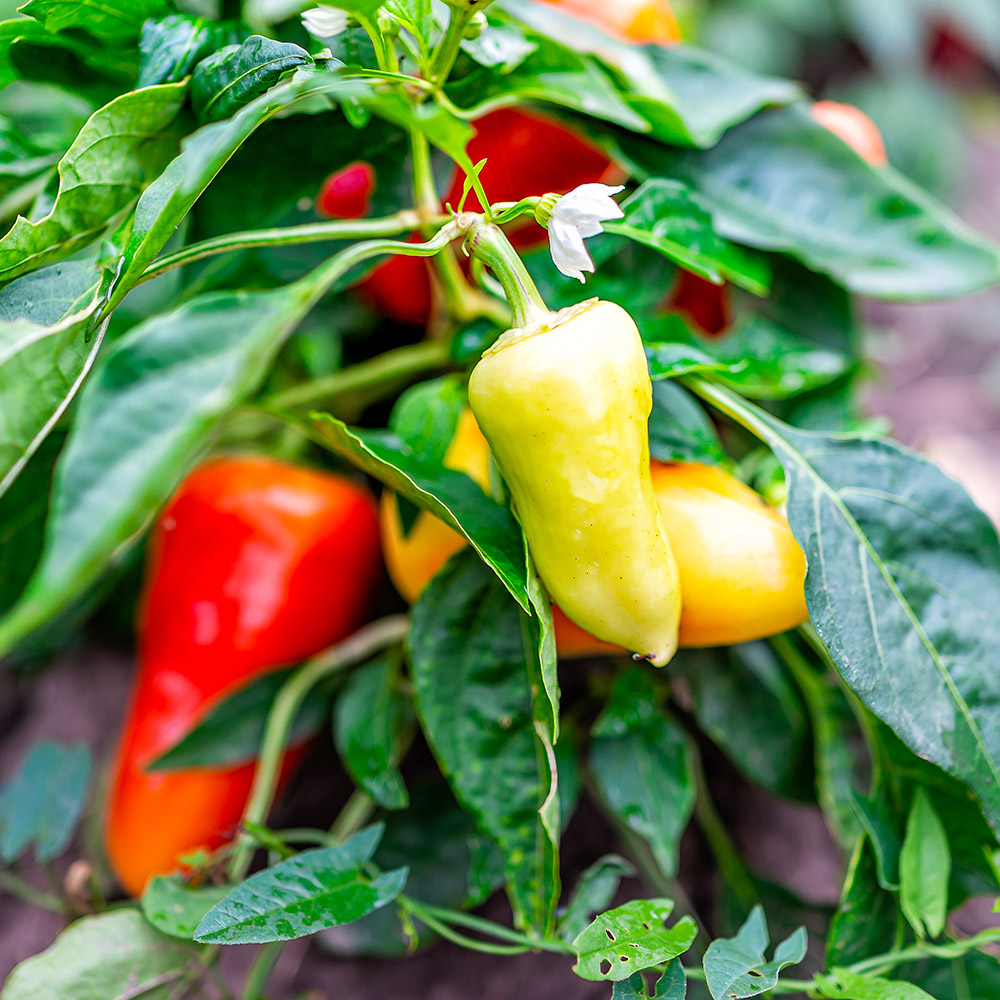Discover the Best Fertilizers for Peppers: Top Picks for Optimum Development
Discover the Best Fertilizers for Peppers: Top Picks for Optimum Development
Blog Article
Organic Vs. Synthetic Fertilizers: Which Is Best for Supporting Healthy Pepper Plants?
In the world of nurturing healthy pepper plants, the option between organic and artificial plant foods stands as a crucial decision with significant implications. While both choices aim to offer necessary nutrients to sustain plant growth, the nuances of their effect on the soil, plant health and wellness, and the setting trigger a discussion that echoes throughout the horticulture area. Comprehending the distinct advantages and possible pitfalls of each fertilizer kind is vital for pepper cultivators seeking to optimize their yields while maintaining a lasting and eco-conscious technique.
Advantages of Organic Plant Foods
Organic plant foods use an environmentally-friendly and lasting technique to beneficial pepper plants, offering essential nutrients without making use of synthetic chemicals. These all-natural plant foods are originated from organic sources such as compost, manure, bone meal, and algae, promoting dirt health and biodiversity. Unlike artificial fertilizers, organic alternatives release nutrients slowly, guaranteeing a well balanced and consistent supply for pepper plants to thrive.
One considerable advantage of natural fertilizers is their capability to boost soil framework and water retention. By improving dirt health, organic plant foods advertise beneficial microbial activity, which assists in nutrient uptake by pepper plants. In addition, organic fertilizers reduce the threat of chemical run-off, shielding water sources from contamination and guarding the setting.
Furthermore, natural fertilizers contribute to lasting dirt fertility by promoting the growth of valuable dirt organisms. These organisms assist break down raw material, launching nutrients in a form that is conveniently available to pepper plants. best fertilizers for peppers. By fostering a healthy dirt ecological community, natural fertilizers sustain lasting pepper farming practices that benefit both plants and the setting
Disadvantages of Artificial Plant Foods
Artificial plant foods, in comparison to their organic counterparts, posture various disadvantages when made use of to nourish pepper plants, affecting both plant wellness and environmental sustainability. One major drawback of synthetic plant foods is their tendency to leach nutrients from the dirt rapidly.
Additionally, the overuse of artificial plant foods can add to water air pollution. Excess fertilizers not taken in by plants can remove right into water bodies, causing eutrophication, where algae blooms diminish oxygen degrees in the water, harming water life. Additionally, synthetic plant foods are typically originated from non-renewable resources, such as fossil fuels, adding to carbon discharges and ecological deterioration throughout their manufacturing.
Nutrient Absorption Contrast
Effective nutrient absorption plays a vital duty in the overall wellness and growth of pepper plants. When contrasting organic and artificial fertilizers in regards to nutrient absorption, organic plant foods have the advantage of anchor providing a much more well balanced and slow-release source of nutrients (best fertilizers for peppers). Organic fertilizers have a selection of macro and micronutrients that are not just valuable for the plants yet likewise advertise healthy and balanced dirt microbial activity, which aids in nutrient uptake. On the other hand, artificial plant foods frequently offer a quick launch of nutrients, which can result in leaching and runoff, leading to lower nutrient absorption prices by the plants.
In addition, natural plant foods enhance soil framework and water retention ability, permitting pepper plants to gain access to nutrients more successfully. This enhanced dirt high quality assists in origin development, making it possible for much better nutrient absorption. Artificial plant foods, although initially improving plant growth because of their high nutrient focus, may hinder long-term nutrient absorption by degrading dirt health and wellness with time.
Environmental Effect Considerations

On the various other hand, artificial plant foods, although typically even more focused and right away available to plants, can have detrimental impacts on the environment otherwise used appropriately (best fertilizers for peppers). Their production requires high energy inputs, resulting in greenhouse gas discharges and adding to climate adjustment. The drainage of excess synthetic fertilizers can infect water resources, leading to eutrophication and harming aquatic communities.
Ideal Fertilizer Practices for Peppers
To accomplish this, it is essential to follow best fertilizer techniques customized to the specific needs of pepper plants. One important technique is to do a dirt test before applying any kind of fertilizers.
An additional crucial technique is to feed pepper plants at the correct time. Generally, peppers gain from receiving plant food at planting and after that once again when they start to blossom. Clicking Here Over-fertilizing can result in vitamins and mineral discrepancies and damage the plants, so it is crucial to comply with advised application rates.
Furthermore, choosing a balanced plant food with an NPK ratio that fits pepper plants' requirements is fundamental. Ultimately, combining artificial and natural fertilizers deliberately can aid support healthy and balanced pepper plants while reducing environmental influence.
Conclusion

Organic fertilizers supply an environmentally-friendly and lasting strategy to beneficial pepper plants, giving vital nutrients without the use of synthetic chemicals. Unlike synthetic fertilizers, organic options launch nutrients gradually, ensuring a steady and balanced supply for pepper plants to thrive.
Synthetic plant foods, in comparison to their natural equivalents, present various disadvantages when used to nurture pepper plants, impacting both plant health and wellness and environmental sustainability. When comparing natural and synthetic plant foods in terms of nutrient absorption, organic plant foods have the benefit of supplying a more well balanced and slow-release source of nutrients.In addition, go to this site organic plant foods improve dirt framework and water retention capability, allowing pepper plants to gain access to nutrients more successfully.
Report this page